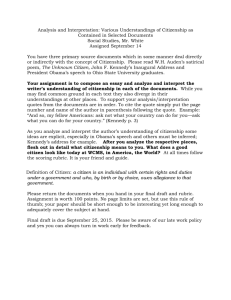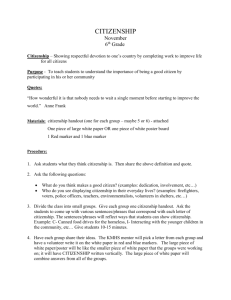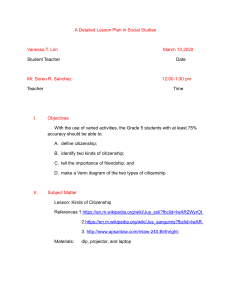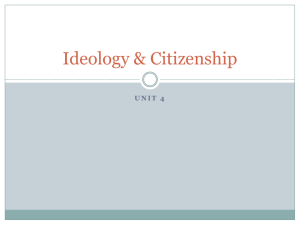US Government - From Mr Bello
advertisement
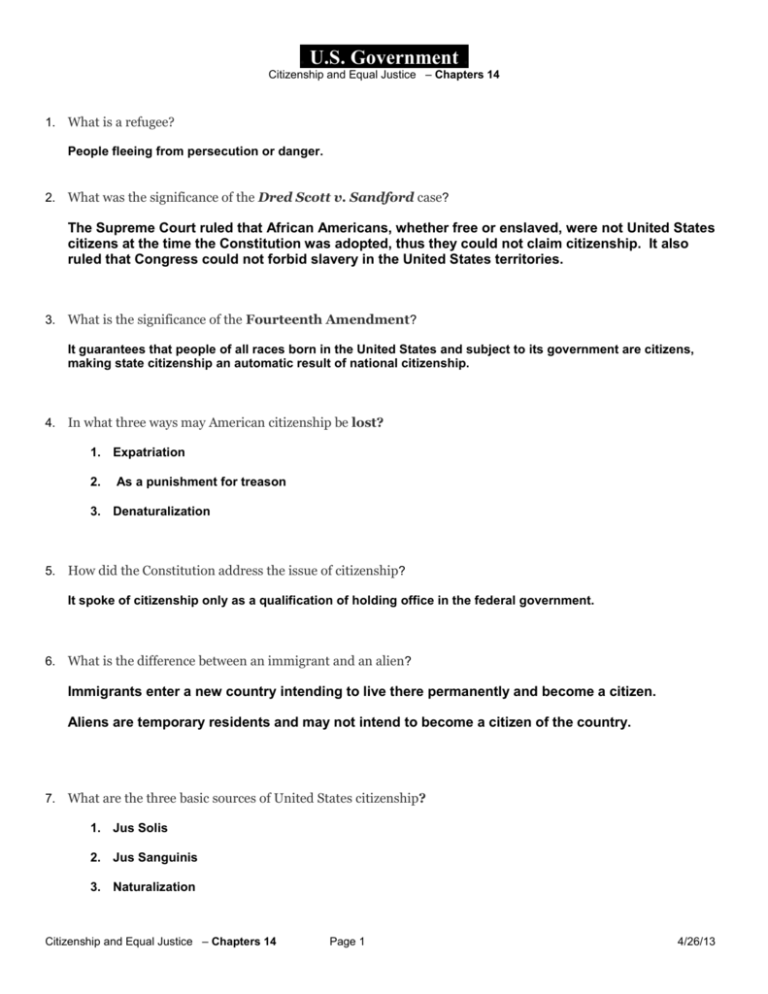
. U.S. Government . Citizenship and Equal Justice – Chapters 14 1. What is a refugee? People fleeing from persecution or danger. 2. What was the significance of the Dred Scott v. Sandford case? The Supreme Court ruled that African Americans, whether free or enslaved, were not United States citizens at the time the Constitution was adopted, thus they could not claim citizenship. It also ruled that Congress could not forbid slavery in the United States territories. 3. What is the significance of the Fourteenth Amendment? It guarantees that people of all races born in the United States and subject to its government are citizens, making state citizenship an automatic result of national citizenship. 4. In what three ways may American citizenship be lost? 1. Expatriation 2. As a punishment for treason 3. Denaturalization 5. How did the Constitution address the issue of citizenship? It spoke of citizenship only as a qualification of holding office in the federal government. 6. What is the difference between an immigrant and an alien? Immigrants enter a new country intending to live there permanently and become a citizen. Aliens are temporary residents and may not intend to become a citizen of the country. 7. What are the three basic sources of United States citizenship? 1. Jus Solis 2. Jus Sanguinis 3. Naturalization Citizenship and Equal Justice – Chapters 14 Page 1 4/26/13 8. What items must be included in a legal search warrant? It must describe the place to be searched and the person or things to be seized. 9. List the three Miranda Rules? Prior o questioning, 1. The person must be warned that he or she has the right to remain silent 2. Any statement he or she makes may be used as evidence against him or her in court 3. He or she has the right to the presence of an attorney Week 2 of 9. The 2nd quiz towards your final.




